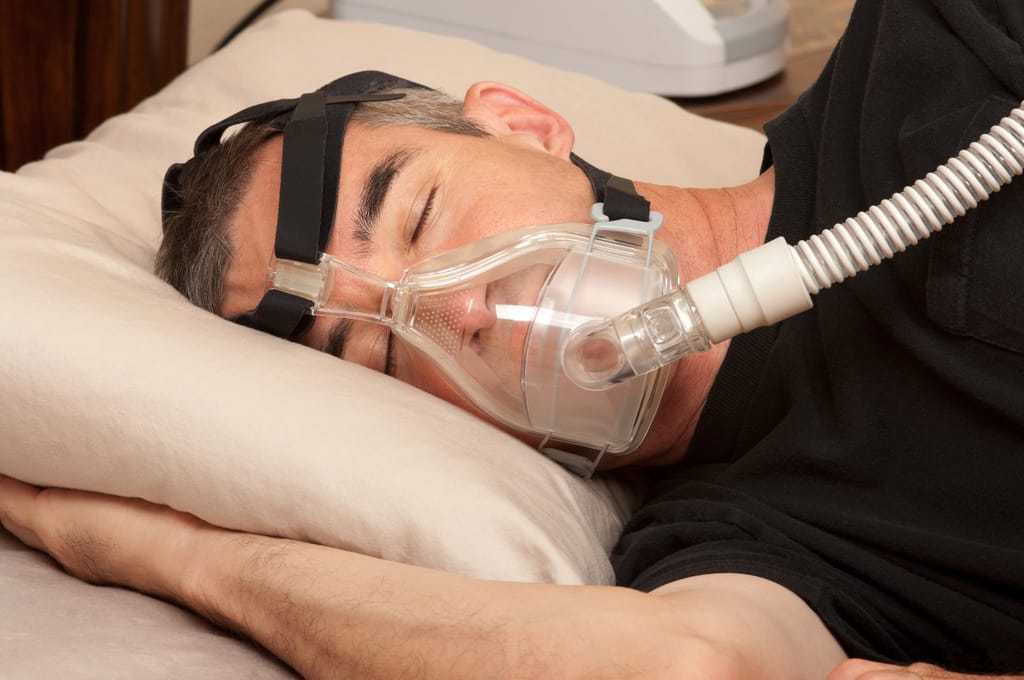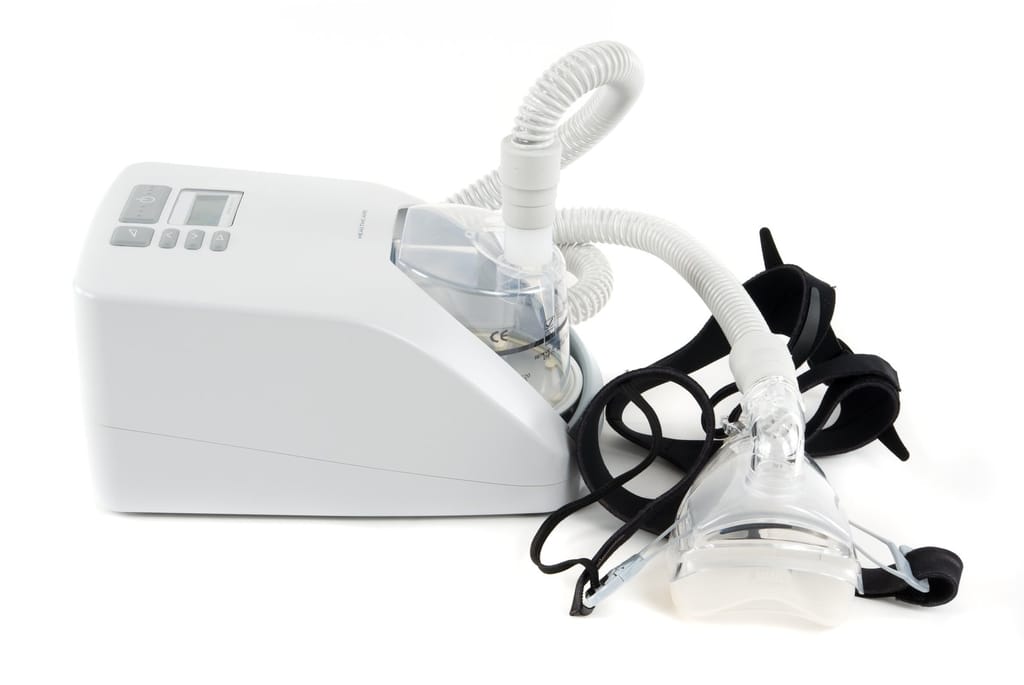What is a CPAP machine?
A CPAP (Continuous Positive Airway Pressure) machine is a device used to treat obstructive sleep apnea (OSA) and other sleep-related breathing disorders. The machine helps to keep the airways open by providing a continuous flow of air through a mask that is worn during sleep.

A Guide for Beginners
CPAP therapy is designed to help people maintain an open airway during sleep, reducing snoring and other symptoms associated with OSA. It is one of the most commonly used treatments for sleep apnea and is considered to be the gold standard of treatment.
If you’ve recently been diagnosed with a sleep disorder, you may have been prescribed a Continuous Positive Airway Pressure machine. If you’re new to the world of CPAP, it can be intimidating to know where to start.
First, it’s important to understand what a CPAP machine is and how it works. These machines are designed to provide a steady stream of pressurized air to your airways while you sleep. This helps to keep your airways open and prevents sleep apnea and other sleep-related breathing issues. The air pressure is adjustable and can be customized to meet your individual needs.
The next step is to determine which type of CPAP machine is right for you. There are several different types available, including travel, traditional, and auto-titrating. Each type has its own advantages and disadvantages, so it’s important to consider your needs and lifestyle before making a decision.
Finally, it’s important to consider the cost of your CPAP machine. Prices can range from a few hundred dollars to several thousand dollars, depending on the features and accessories you choose. Factor in the price of any additional supplies such as filters and tubing, as well as any future repairs or replacements you may need.
Common CPAP Machine Complications
While CPAP machines can be an effective treatment, they can also cause various complications. The most common complication is air leaks. Air leaks occur when air escapes through the mask’s seal, often resulting in a dry mouth, skin irritation, and soreness. To reduce the risk of air leaks, it is important to ensure that the mask fits properly and is adjusted correctly. Additionally, cleaning the mask regularly can help to keep the seal tight and reduce the risk of leaks.
Skin irritation is another common complication of CPAP machines. Skin irritation can occur from the mask rubbing against the face or from the humidifier. To reduce the risk of skin irritation, it is important to ensure that the mask is cleaned and replaced regularly. Additionally, using a heated humidifier can help to reduce the risk of skin irritation.
Nasal congestion is another common problem associated with CPAP machines. Nasal congestion can occur as a result of dry air or as an allergic reaction to the mask or humidifier. To reduce the risk of nasal congestion, it is important to use a humidifier and opt for a mask made of hypoallergenic materials. Using a saline nasal spray can help to reduce the risk of congestion.
Finally, CPAP machines can also cause headaches and dry eyes. To reduce the risk of headaches and dry eyes, it is important to adjust the settings and ensure that the mask fits properly. Using a humidifier can help to reduce the risk of both headaches and dry eyes.

A therapy for sleep apnea
Sleep apnea is a serious disorder that can have a significant impact on the quality of life of those who suffer from it. Fortunately, CPAP therapy is an effective treatment option that can help sufferers manage their sleep apnea.
CPAP is a noninvasive treatment that uses a mask and a small machine to deliver a steady stream of air pressure through the airway. This pressure helps to keep the airway open, allowing for uninterrupted breathing throughout the night. The most significant benefit of this therapy is that it can help to reduce the severity of sleep apnea and its associated symptoms. This can lead to improved sleep quality and fewer daytime sleepiness symptoms.
CPAP therapy can also help to reduce the risk of other health complications associated with sleep apnea, such as high blood pressure, heart disease, and stroke. By reducing the airflow obstruction that occurs during sleep apnea episodes, the therapy can also help to reduce episodes of snoring and choking. This leads to improved quality of sleep for both the sufferer and their partner.
Finally, CPAP therapy can help to improve overall quality of life. By improving sleep quality and reducing symptoms of sleep apnea, individuals are able to have more energy during the day, allowing them to engage in activities they may have avoided due to fatigue or lack of energy. The same therapy can help individuals to feel more alert and focused during the day, leading to improved productivity and a better overall quality of life.
Conclusion
A CPAP machine is a device that is used to treat sleep apnea and other sleep-related breathing disorders. The machine works by delivering a steady stream of air pressure to the airway, allowing the user to breathe more easily. The device is usually worn during sleep, and its effectiveness can be improved by making sure the air pressure is set correctly and that the mask is fitted properly.
Reference
- Noyed, D. (2023, February 21). Best CPAP Machines. Sleep Foundation. https://www.sleepfoundation.org/best-cpap-machines
- Repasky, D. (2022, December 13). CPAP Machine: How It Works, Reasons, Uses, and Benefits for Sleep Apnea. CPAP.com Blog. https://www.cpap.com/blog/cpap-machine-works-reasons-uses/
- Stanborough, R. M. J. (2020, August 18). What’s a CPAP Machine, and How Does It Work? Healthline. https://www.healthline.com/health/what-is-a-cpap-machine